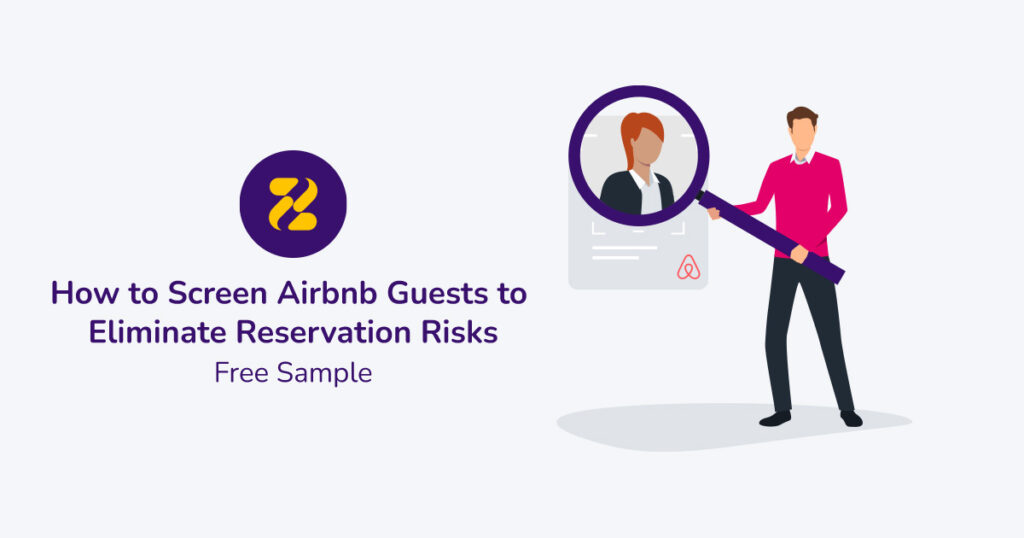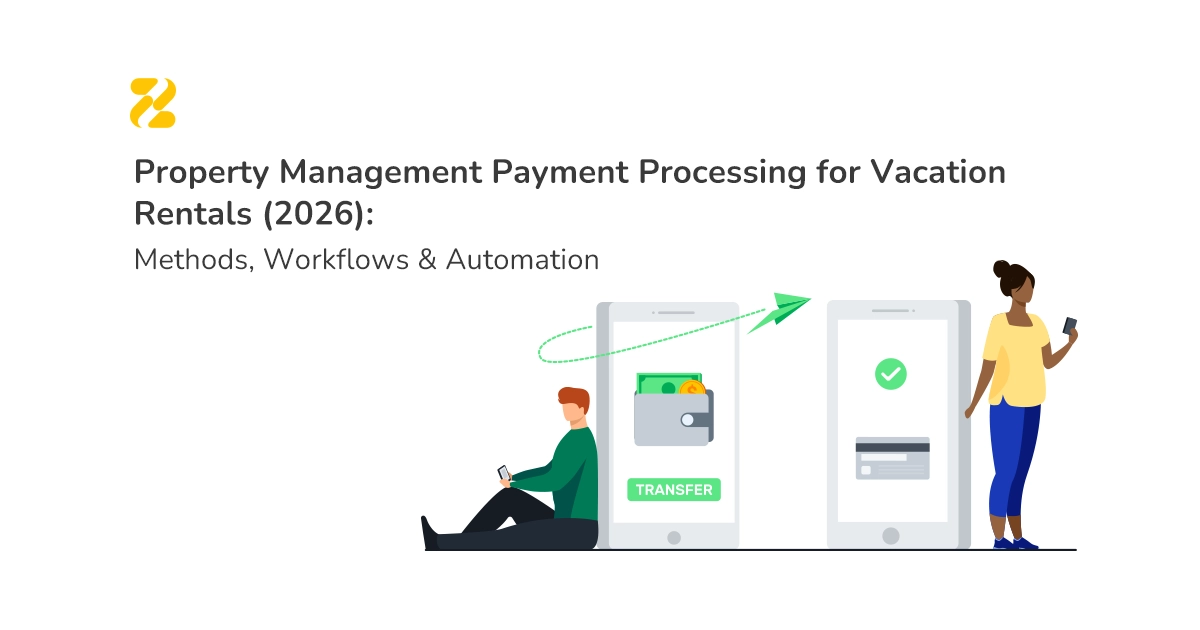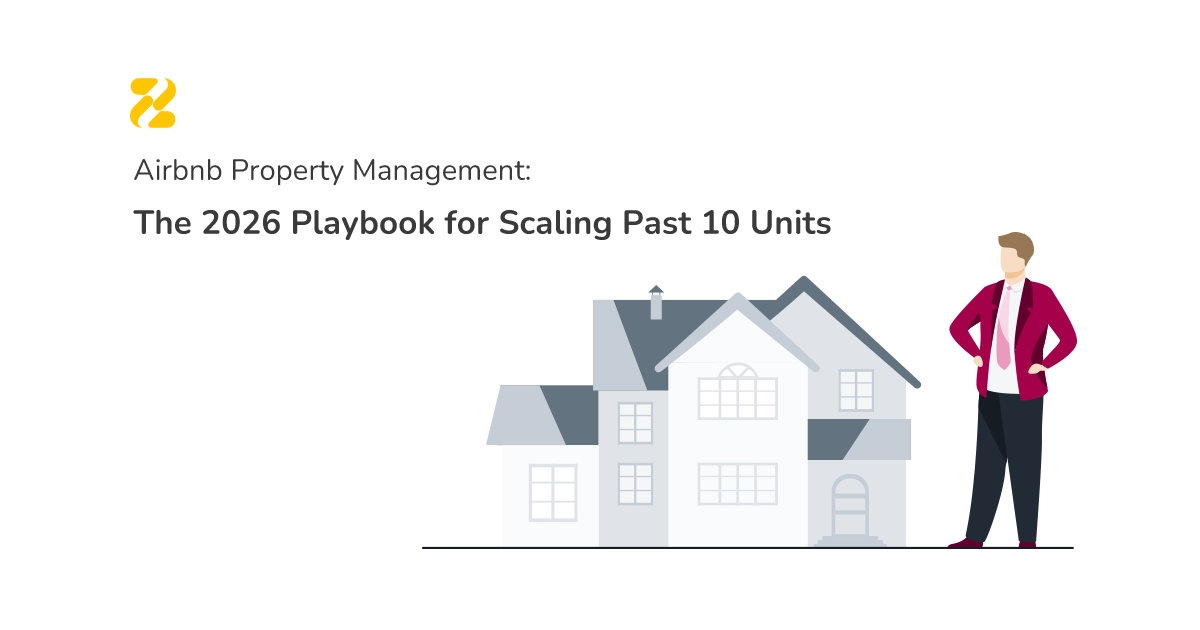- A party that ruined a rental property
- An Airbnb rental turned to a junkie den
- A vacation home used as a brothel
- An Airbnb guest refused to leave
These are real stories from property owners who intended to make money from their rentals but ended up with severe property damage, resulting in huge losses. This highlights why short-term rental operators must know how to screen Airbnb guests effectively to mitigate potential risks and prevent disaster.
Whether you’ve experienced such issues firsthand or have heard similar stories from others, you know the importance of spotting the red flags during the booking process.
Table of Contents
The Importance of Screening Airbnb Guests
Airbnb has made efforts to provide secure bookings through background checks. However, as Airbnb itself states:
“No background check should ever be relied upon as the sole indicator of suitability.”
Thus, Airbnb hosts are encouraged to use their own judgment and implement additional screening methods. Here are some practical tips to help you screen guests effectively:
Some Tips on How to Screen Airbnb Guests

1. Specify Your Property Details
The first step in reaching the right audience is by clearly specifying your property details. This includes outlining strict house rules and providing specific information about the property’s suitability. For example, explain whether your property is better suited for a family vacation or business travellers. By clearly communicating your expectations, you can easily filter out guests who aren’t a good fit before they even book.
Pro Tip: Airbnb’s Help Centre suggests that specifying clear property details helps ensure both guests and hosts know exactly what to expect, reducing the risk of misunderstandings.
2. Review Airbnb Profiles of Guests
Airbnb guest profiles can provide valuable insights into potential guests. If a guest’s profile is complete and up to date, it signals that they may be more trustworthy and less likely to engage in fraudulent activity. However, if the profile is incomplete, consider it a warning sign and take extra steps to investigate.
Red Flag Alert: According to Keynest, incomplete profiles can suggest a lack of transparency or accountability, meaning more vetting is required to ensure the guest is reliable and trustworthy.
3. Ask Relevant Questions by Taking the Information Test
If you find a guest’s profile lacking, consider asking for additional details. Simple requests like contact information (email, phone number) or the purpose of their visit can provide more clarity. Trustworthy guests won’t hesitate to share relevant information, whereas those who are reluctant to answer might require further investigation.
Some key questions to ask might include:
- Why are you visiting this city/country?
- Why did you choose my listing?
- Will anyone be accompanying you or visiting during your stay?
- Have you read the house terms and conditions?
4. Verify through Contacting Other Hosts
One of the most reliable ways to verify a guest’s identity is by contacting their previous hosts. This step allows you to ensure that the guest has a history of positive stays and is less likely to damage your property.
5. Check Guests’ References
Airbnb allows users to upload references from family, friends, or colleagues, which can provide further insight into the guest’s character and reliability. Reviewing these references can be a helpful step in making your decision.
6. Check Guests’ Accounts on Social Media
Airbnb has given this opportunity to hosts and guests to link their social media accounts on Facebook, LinkedIn, and Google platforms with their Airbnb accounts. You can simply check their social connections and see if they have a real identity and online activity.
The Role of Property Management Systems (PMS) in Screening Guests
Given the complexities of running a vacation rental, particularly when managing multiple properties, a Property Management System (PMS) like Zeevou can simplify the screening process. Zeevou’s Guest Vetting service and integrations with screening tools provide an all-in-one solution to effectively manage the booking process and enhance reservation security.
How Can PMSes Like Zeevou Help to Screen Airbnb Guests?

Property Management Systems like Zeevou facilitate handling the day-to-day operation of real estate through accessing many resources and integrating with various tools. As a leading and innovative PMS, Zeevou has done a lot to provide you with hassle-free and hands-off management, and screening Airbnb guests is not an exception.
Zeevou renders a Guest Vetting service and some other features helpful in controlling the booking process and boosting reservation security. You can see a brief of these features below.
Five-Step Online Check-in Process
Zeevou offers a Online Check-in Process to make sure that the reservations are fully protected. This 5-step process includes collecting the contact details of guests and some information about additional guests. This service also provides 3-D secure links, an extra layer of protection over payment gateways to reduce the risk of fraud and chargebacks by verifying the cardholder’s identity. Pre-authorising as well as releasing the security deposit is managed during this process.
Integration with Screening Services
As part of the guest screening program, Zeevou has built an integration with the online trust platform of SUPERHOG. This integration enables users to make safe transactions and bookings through ID verification and screening technology. So you can safeguard your property by admitting trusty guests who SUPERHOG verifies.
Quick Tip: Zeevou’s integration ensures that you can filter out high-risk reservations, significantly reducing the chance of property damage.
Booking Warnings
Zeevou has also implemented some settings that notify hosts when receiving high-risk reservations, such as:
Local guest booking warning: This warning appears when a lead guest from the local area wants to book with you. As you know, when someone is booking a rental property in her city or the local area, she is probably intended to arrange something that she can’t or doesn’t want to do in her place. It might be holding a big party or abusing the property, maybe for criminal purposes.
Last-minute booking warning: Guests who make a last-minute reservation (two days or less before arrival) are usually suspected of committing fraud. Because there won’t be enough time to thoroughly investigate the guest’s real identity, delinquents might take advantage of last-hour bookings.
Weekend booking warning: The host can also be notified of bookings set for just one or two nights starting on a Friday or any defined weekend. Weekends are the best time to throw parties, and where is better than a rental home, especially for teenagers who can’t have people over in their parents’ house. Thus, weekend bookings can also be a red flag that makes you think twice before admitting a reservation.
Minimum age warning: Since youngsters are less likely to be caring and trustworthy, the host can define a minimum age for all bookings or on some particular properties to protect the home and belongings from troublemaking guests.
All settings mentioned above are optional and can be customised upon your request, allow you to control your booking process with ease and make more informed decisions.
Despite Airbnb’s efforts to implement secure booking processes, the responsibility for guest screening ultimately lies with the host. To reduce the risk of property damage, fraud, and other issues, hosts should utilise a combination of Airbnb’s built-in vetting tools and additional screening measures like checking guest profiles, requesting references, and using professional Property Management Systems like Zeevou to streamline the process.
With these tools in place, you can ensure that your vacation home is in safe hands, boosting your direct bookings while avoiding costly disasters.




